roper river
-
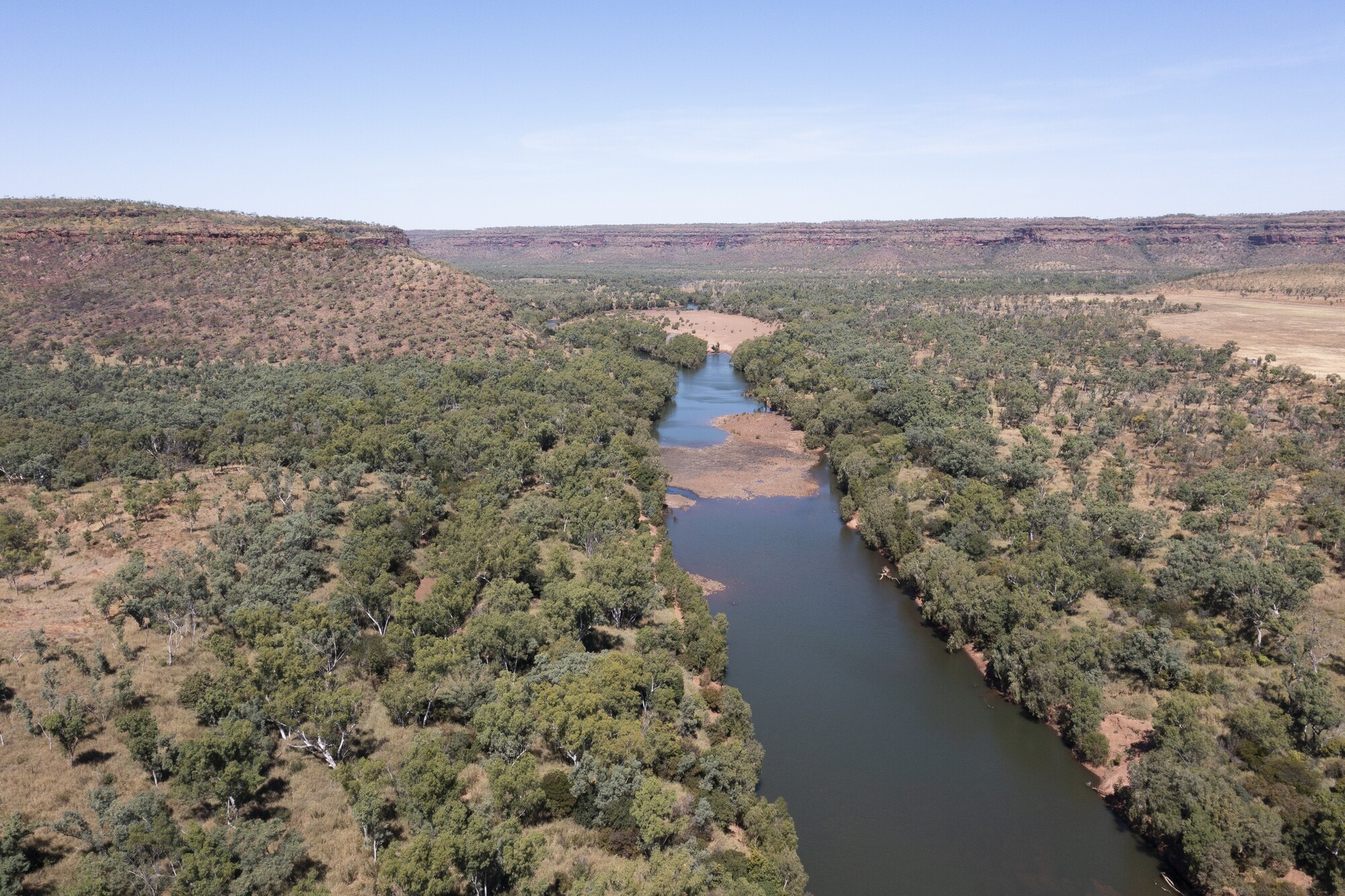
Video: Natural Values of Territory Rivers
Learn moreWitness what makes the treasures of the Northern Territory special! Our pristine rivers are a true natural wonder and are unique in this world.
Unlike elsewhere in the world, Territory rivers like the Daly, Roper, Adelaide and Victoria remain in good shape – they haven’t been dammed, over-extracted and polluted like rivers down south.
The health of these rivers is important for providing drinking water, food, jobs, and underpinning culture.
They also support a wide range of unique species, some of which are not found anywhere else.cotton, cotton industry, Daly River, floodplain harvesting, floodplainharvesting, land clearing, murraydarlingbasin, NT Government, roper river
-
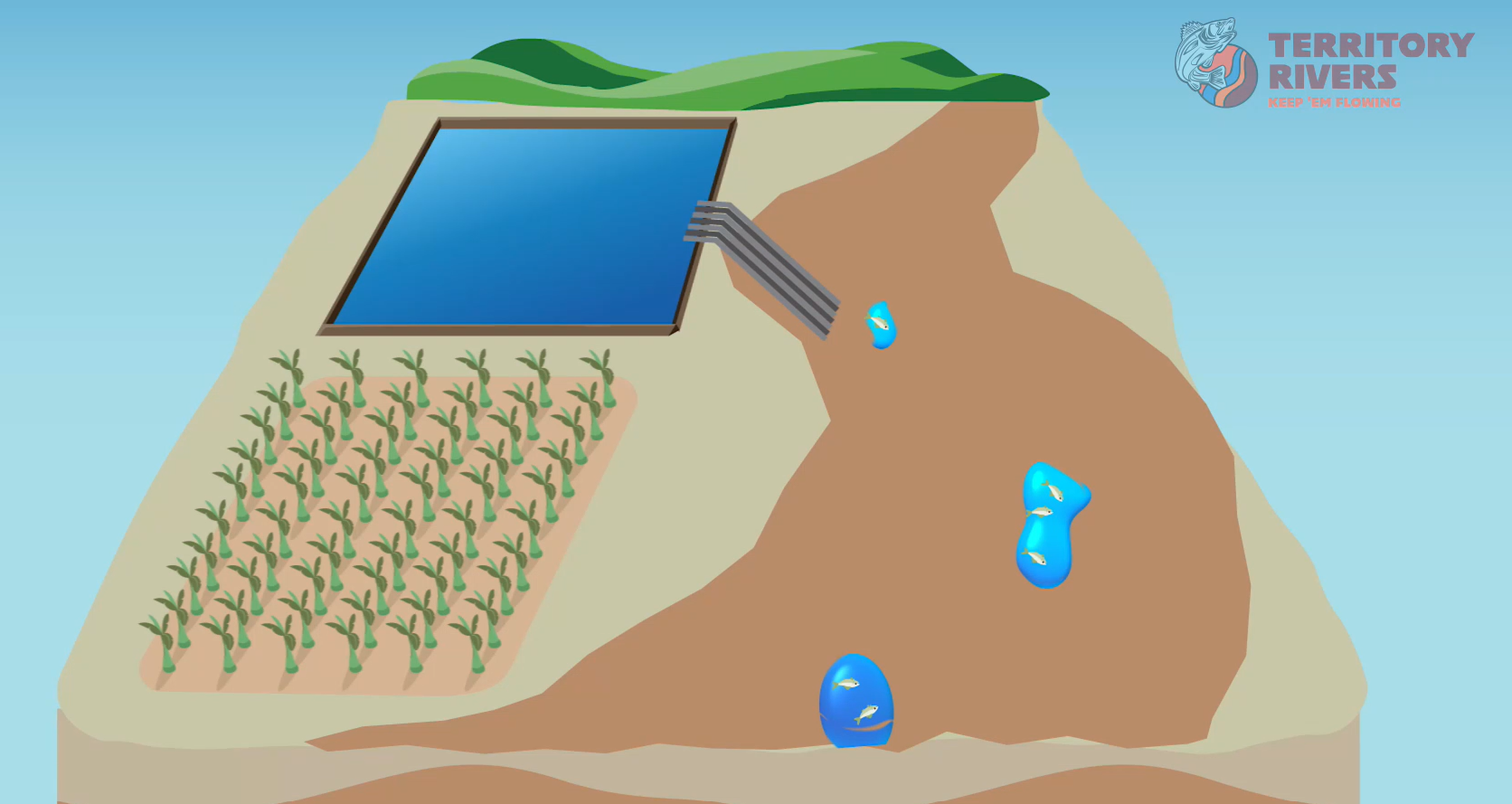
Video: Floodplain Harvesting in the Northern Territory
Learn more“We’re looking down the barrel of a repeat of the Murray-Darling Basin here in the Top End and it’s something that the community is absolutely opposed to.”
Kirsty Howey from Environment Centre NT explains the troubling process of ‘floodplain harvesting’ and why it risks our rivers.
cotton, cotton industry, Daly River, floodplain harvesting, floodplainharvesting, land clearing, murraydarlingbasin, NT Government, roper river
-

Bringing the Roper River to Canberra
Learn moreWe’re writing to you from the halls of Parliament in Canberra, where we’ve just delivered a powerful message to politicians from all sides.
Our message is clear: water is life.
If we don’t protect our water – our river – our country, we risk losing the very thing that sustains our communities and our culture.
It was a long journey to get here. Northeast Arnhem Land, Katherine, Darwin, and then all the way down to Canberra.

Our 13-metre-long map of the mighty Roper River, showing all the cultural sites and songlines of our Country, took 18 months for us to make. Our songlines follow the water, connecting us all. If our water is taken, our culture and people are at risk.
And we talked to those people who need to listen. We met with Ministers, Senators and MPs from all sides of politics in this place.
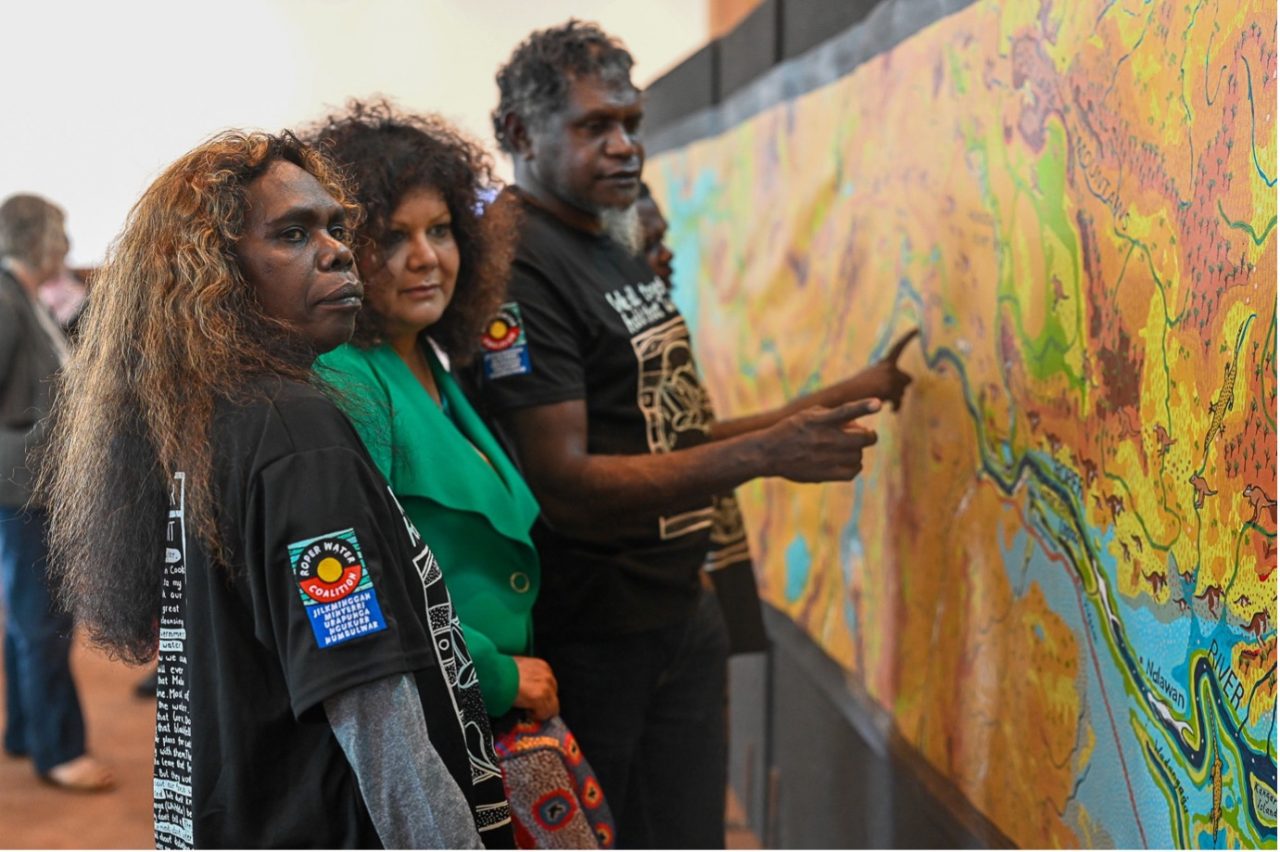
We told them that the Roper River – our lifeblood – is under threat from cotton, fracking and other industries. These thirsty industries all risk taking too much water and damaging the river. We used the map to show them our Country, and everything it sustains.
You can read more about our time in Canberra on ABC News, or watch this video of our speeches in Parliament.
Now, we’re starting the long journey back home. We’re tired, and we’re looking forward to getting back to our Country, our homes, and our families.
But the fight to protect the Roper is not over.
The future of our river, our people and our culture all rely on urgent action. We cannot repeat the mistakes of the Murray-Darling. It’s time to forge a new path that respects and includes the knowledge and rights of First Nations people.
Thank you for your support – for the letters you sent to the people here in Parliament, and for showing us that thousands of Australians are behind us.
We know that you’ll be there with us at the next stage. We are going to need to keep telling those in Canberra that they need to act. Together, we can and will protect the Roper.
Thank you
Linda Williams, Naomi Wilfred, Daphne Daniels, Rosina Farrell, Clive Nunggarrgalu, Roland Nundhirribala
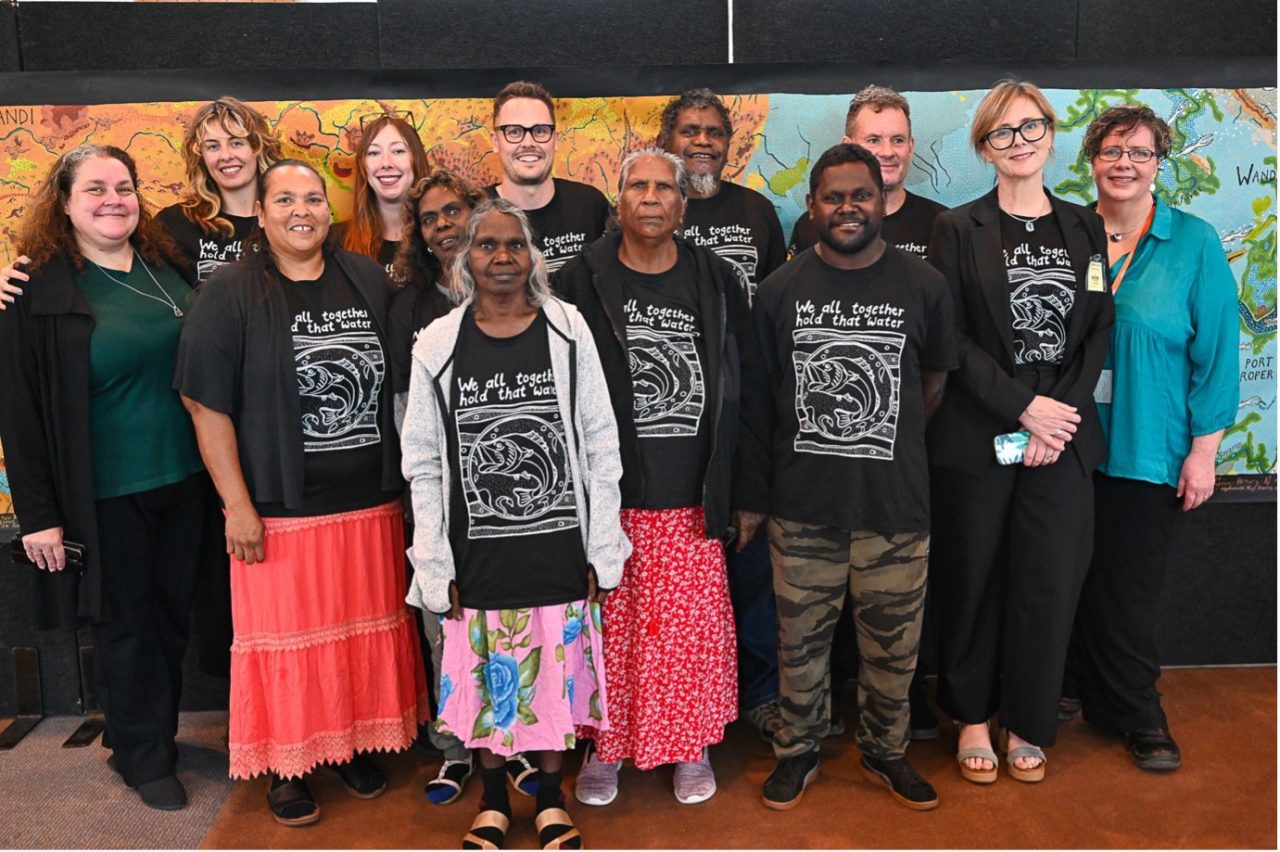
-
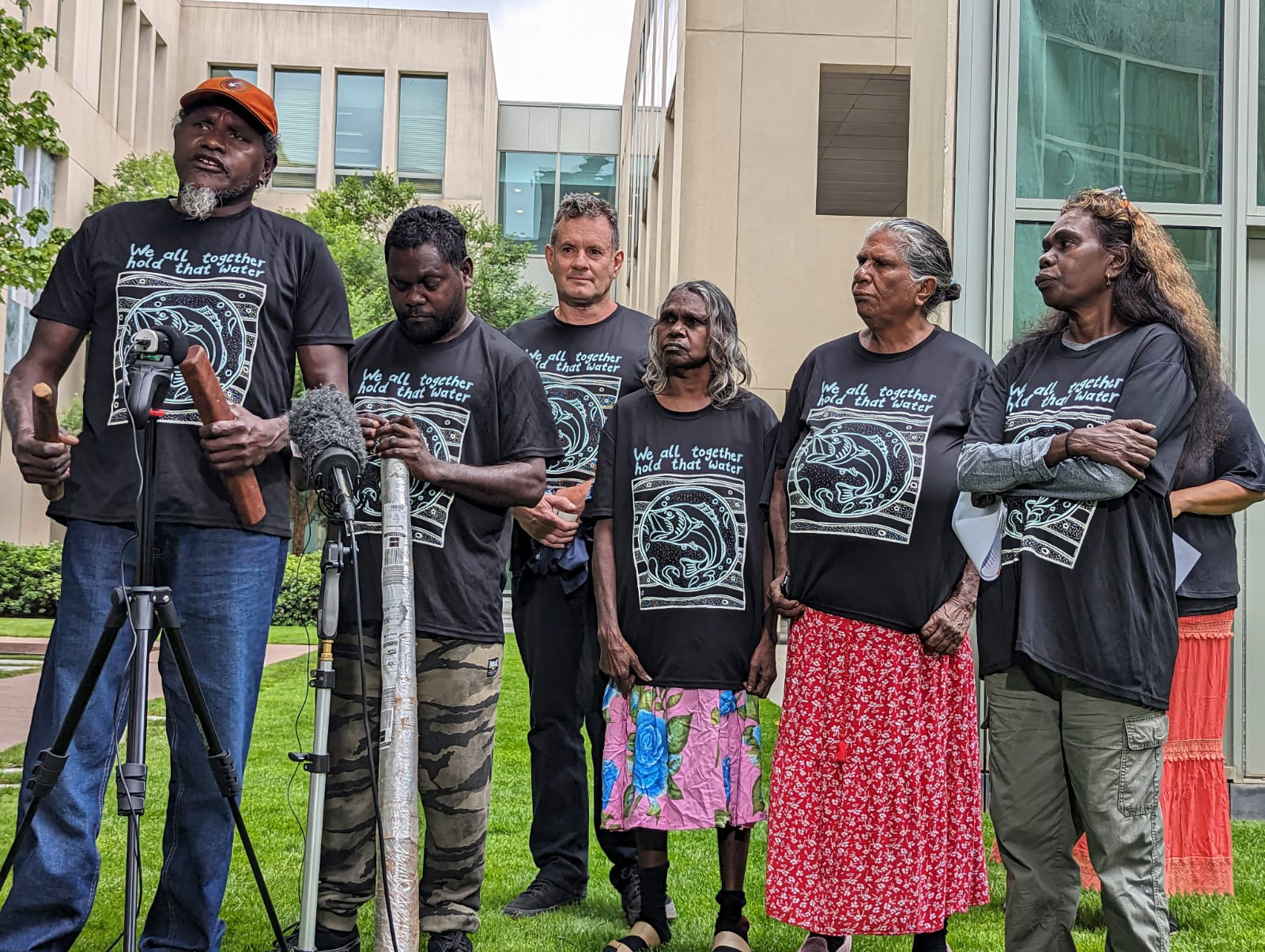
“If you kill our culture, you kill our people”: Arnhem Land Traditional Owners present 13-metre map petition to Federal Parliament, calling for protection of the Roper River
Learn moreTraditional Owners from across 20,000 square kilometres of the Northern Territory have today travelled to Canberra to ask for protection of the Roper River from threats posed by new water intensive industries in the catchment and to be at the forefront of decision-making for the river.
Representatives of communities across the catchment will present a 13-metre hand-painted cultural map and associated statement, which has been signed by hundreds of remote community residents, to the Federal Parliament.
There are proposals to take hundreds of thousands of litres of surface and groundwater from rivers including the Roper for big industries including cotton, fracking and mining. The cotton industry has flagged 100,000 hectares will be bulldozed for crops in the Northern Territory by 2030, which could lead to a Murray Darling style disaster. Traditional Owners have not been properly consulted about these plans and their cultural knowledge and community aspirations have not been considered.
“We’ve got so many important springs to protect,” Alawa Traditional Owner Naomi Wilfred said about her Country near Minyerri.
“We made that map to show Canberra about the water connection. The threat we’re worrying about is cotton is coming in and I think we’ll have no water left. We want to tell them to stop taking water and start listening to the rightful Traditional Owners.
“We want to see this river protected for our future generations.”
The river catchment – which covers an area about the size of Tasmania – boasts some of the last intact native savanna and free-flowing tropical rivers in Australia, but the future health of the river is under immediate threat.
The delegation is calling on the Australian Government to acknowledge their Indigenous water rights, to implement proper consultation mechanisms about major water decisions, and for the whole of the river catchment – including important cultural and dreaming sites – to be properly protected.
Artist Simon Normand, who worked with communities to create the map, said:
“This map is an Aboriginal way of showing their world to an outside audience.”
“It is the culmination of 18 months’ collaboration with communities in south-east Arnhem Land, who are extremely worried about their river system being irreversibly destroyed.
“The map draws on more than 25 years of working with elders who want their songlines preserved.”
Mitch Hart from the Pew Charitable Trusts, who supported the delegation to travel to Canberra, said:
“Water hungry industries, such as industrialised cotton production, are setting up shop along rivers like the Roper – despite the damage caused by over-extraction, bulldozing and pollution.
“Communities that live along the Roper and rely on it for survival are extremely concerned about its future. The Federal Government has an opportunity to respond to this powerful message from Traditional Owners and support communities who rely on these rivers.
“We cannot let mistakes made in the Murray Darling be repeated on the Roper.”
The map will be officially unveiled at an event in the Mural Hall of Australian Parliament at 3.30pm on Tuesday 28 November 2023. The event will also feature a cultural performance by songmen from Numbulwar.Notes for editors:
- The Roper River is the Northern Territory’s second largest river. Its headwaters extend northwards right up into Arnhem Land and south into the drier expanse of the Beetaloo Basin. In the dry season, the Mataranka hot springs are fed by vast underground aquifers which spill over into the Roper and keep the river flowing to the Gulf of Carpentaria at Port Roper.
- The Roper is important river for commercial fishing as it helps to feed Australia’s most valuable prawn fishery and accounts for much of the banana prawns available in supermarkets.
- Threatened species on the Roper River include the Curlew Sandpiper, Gulf Snapping Turtle, Northern Quoll, Red Goshawk, Gouldian Finch, Australian Painted Snipe, Mitchells Water Monitor, Crested Shrike tit and Grey Falcon.
- Concerns related to the Roper River include:
- In November 2022, some of the most eminent water experts from across the country wrote to the NT Chief Minister to outline strong concerns around water management in the Northern Territory. These include Professor Sue Jackson, Professor Barry Hart, Professor Quentin Grafton, Professor Marcia Langton, Professor Richard Kingsford, Professor Anne Poelina and others.
- In September 2022, an FOI request by the Environment Centre NT revealed that the NT Government’s Director of Water Planning had warned in an internal memo that allowing 80 per cent of the Mataranka Tindall Limestone Aquifer in the region to be extracted, could “cause water [in the Roper River] to flow in the opposite direction”, and “potentially impacts on the environmental and cultural values” of the Roper River.
- In August 2022, a report by the Centre for Conservation Geography outlined that major aquifers in the Daly and Roper river regions are already ‘overallocated’ (the volumes of allocated water exceed the NT Government’s estimated sustainable yields), and there is insufficient water available to meet existing commitments for strategic Aboriginal water reserves.
- In February 2021, a comprehensive scientific study evaluating the environmental state of play in Australia was published. Of the 19 Australian ecosystems which met the criteria to be classified as “collapsing” are the Northern Territory’s tropical savannas, where large-scale agriculture could be expanded in the coming decades, particularly in the Daly, Katherine and Roper River catchments.
- NT Government major policies and plans that could impact the Roper River:
- Surface Water Take -Wet Season Flows Policy
- Interference With A Waterway Guidelines
- Georgina Wiso Water Allocation Plan
- Mataranka Water Allocation Plan
- The Roper River cultural map statement text:
- We represent the clans and language groups of South East Arnhem Land: Ngalakgan, Alawa, Mangarrayi, Ngandi, Marra, Warndarrang, Nunggubuyu, Ritharrngu-Wagilak and Rembarrnga.
We are the Traditional Custodians of the Roper River and its catchment. We speak as one voice. We have translated this statement into your language, English, to help you understand us. Water is life.
All our songlines follow the water. We are all connected. If you take our water, you kill our culture. If you kill our culture, you kill our people.
We want our Indigenous water rights properly recognised, including:- We want a ban on all further water extraction, licenses and surface water harvesting in the Roper catchment, including the groundwater and floodplains that are the life of the River.
- We want evidence that environmental and Indigenous cultural values are protected and made into law.
- We want all downstream communities of the Roper to be included in all water joint-decision making from now on. We have never been consulted.
- Our scientific and cultural knowledge of freshwater and saltwater Country came long before Colonisation and must be listened to and prioritised.”
- We represent the clans and language groups of South East Arnhem Land: Ngalakgan, Alawa, Mangarrayi, Ngandi, Marra, Warndarrang, Nunggubuyu, Ritharrngu-Wagilak and Rembarrnga.
-

Tell Canberra to protect the Roper River
Learn moreTraditional owners along Australia’s mighty Roper are calling for protection of the river as they prepare to meet with ministers, MPs and Senators in Canberra!
The Roper is one of our last free-flowing, tropical rivers but its future is under immediate threat – from cotton, fracking, land clearing, and mining.
Northern Territory Government plans to allow huge amounts of water to be pumped from the Roper and its floodplains threaten to destroy this river and create a Murray-Darling disaster.
This is our chance to protect one of our last free-flowing rivers.
The river supports the livelihoods of local communities, culture, tourism, fishing, and its flows are essential to the health of endangered turtles and dugongs, as well as barramundi, prawn and crabs in the Gulf of Carpentaria. Its flows rely on groundwater that feeds the famous Mataranka and Bitter Springs.
The Federal Government needs to act. Right now is a once in a generation chance to ensure we don’t repeat the mistakes of the Murray Darling.
Traditional owner groups from across the Roper region have created a 13m long songlines map of their river and its floodplains. The map covers 20,000km2 of the Roper catchment, and has travelled hundreds of kilometres across the NT, from Numbulwar on the Gulf of Carpentaria, through Ngukurr, Urupanga, Minyerri, Jilkminggan and Katherine, collecting signatures in each Roper community along the way. On November 28th, they are travelling to Canberra to meet with members of Parliament to ask for help to protect the future of their freshwater.
Stand with the Roper River and its communities by backing their statement calling for protection, and for Environment Minister Tanya Plibersek to act to sustain our rivers for future generations.
-
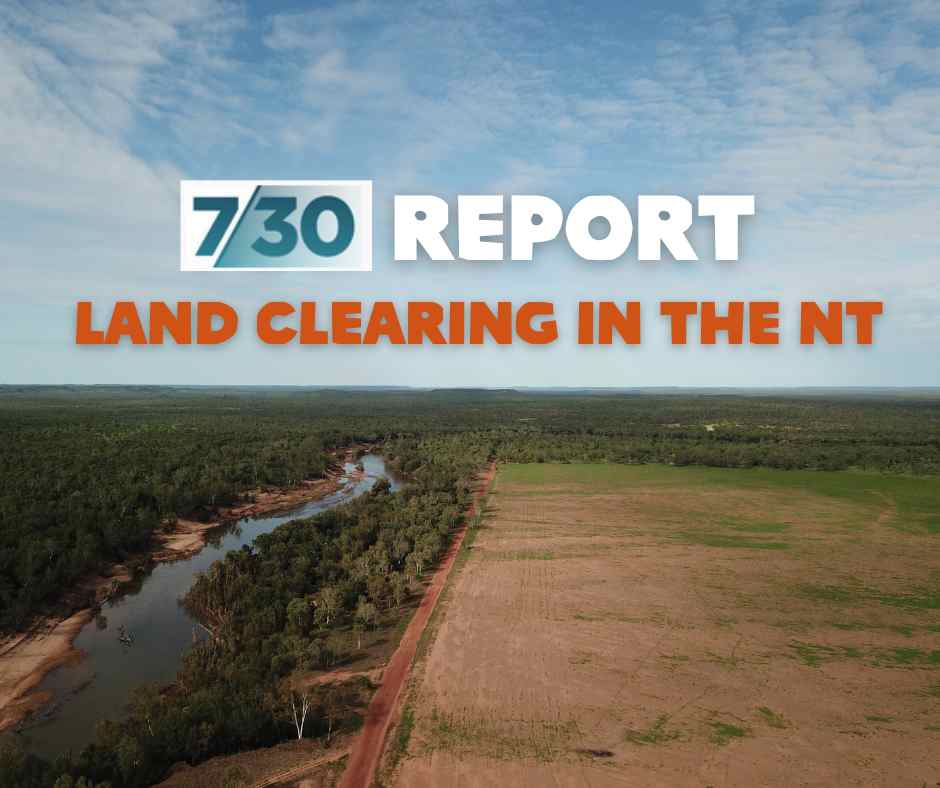
‘Aboriginal land council levels criticism at NT government over unregulated land clearing’: ABC
Learn moreExcerpt: “A prominent lobby group says land clearing is risking the NT’s river networks — which are some of the most pristine in the world — and the failure to properly regulate land clearing for a cotton industry is disappointing.
Warren de With, the president of the Amateur Fishermen’s Association of the NT (AFANT), said extensive clearing near the Daly River — a tourism and barramundi fishing mecca — was of most concern.”
Read the full story HERE or watch it below.
ABC TV – LAND CLEARING: Aboriginal land council ‘loses confidence’ with NT Govt. Report by Roxanne Fitzgerald. You can also listen to the NT Country Hour segment below:
You can sign our action asking the NT Govt to act to protect our rivers, floodplains and surrounding savannas HERE.
cotton, cotton industry, Daly River, environment, floodplainharvesting, land clearing, murraydarlingbasin, NT Government, roper, roper river, Territory rivers, waterextraction
-
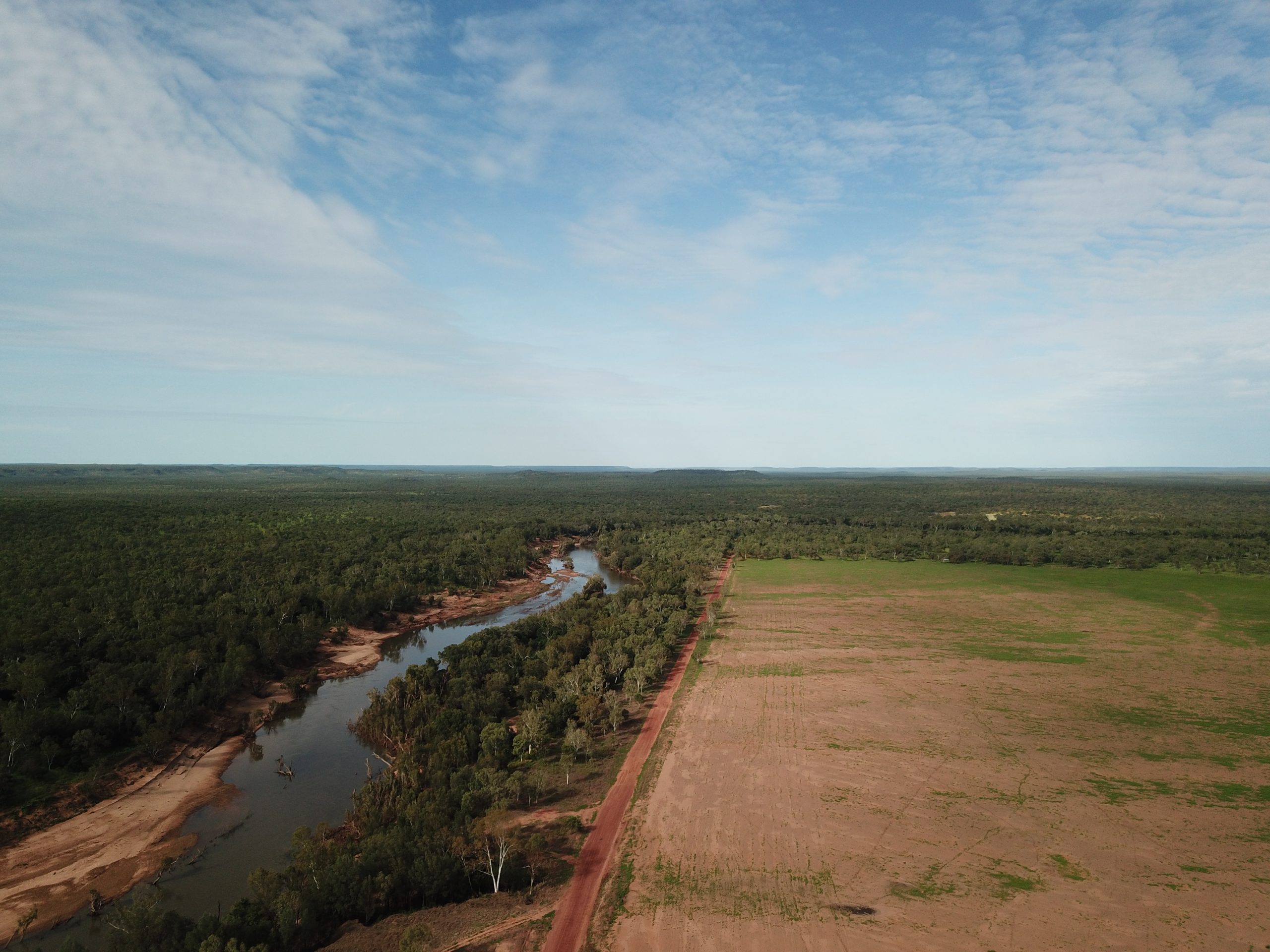
Federal intervention required over land clearing near iconic Top End river
Learn moreMEDIA RELEASE
Conservation advocates are calling for federal intervention to protect native savanna and rivers in the Top End following national revelations that the Northern Territory’s existing environmental protection regime may be failing to provide proper oversight.
“The public is rightly shocked by the media coverage of satellite pictures showing what appears to be unpermitted clearing and regulatory inaction on land clearing, right next to iconic rivers such as the Daly River,” said Pew Charitable Trusts’ Northern Territory manager Mitch Hart.
“The activity – revealed on ABC TV’s 730 current affairs program this week – raises questions about the Northern Territory Government’s capacity to protect our environment, culture, fishing and the lifestyle which Territorians value highly.
“We welcome the strong concern raised by the Federal Labor Government Environment Minister, Tanya Plibersek, who calls for a stop to unauthorised land clearing, as well as the intervention by independent Senator David Pocock and the call for an Inquiry by Senator Sarah Hanson-Young of the Australian Greens.
“This is a key test of whether the Northern Territory Government can meet its responsibility to properly look after the Territory’s environment. We need properly enforced environmental standards that actually protect our rivers, floodplains and savannahs. First and foremost, the government must act to stop the rush to bulldoze Australian bush for cotton crops,” Mr Hart said
“We need to approach river management in a completely different way to ensure that we don’t repeat the dire mistakes made in rivers elsewhere in Australia. That means involving communities in developing management plans and mapping out new pathways for protection right across the Territory – using local Indigenous knowledge incorporating best science around water flows, native species’ requirements and climatic change impacts.
“Industrial cotton farming is not compatible with the sustainable management and protection of the Territory’s intact tropical river systems – some of the last in the world,” he said.
Note: The report – A Fork in the River – the consequences of a major new cotton industry in the Northern Territory, warns that the establishment of a major cotton industry in the Northern Territory could jeopardise Top End river systems, threatening their unique biodiversity and putting at risk the NT’s lucrative fishing and tourism industries.
-
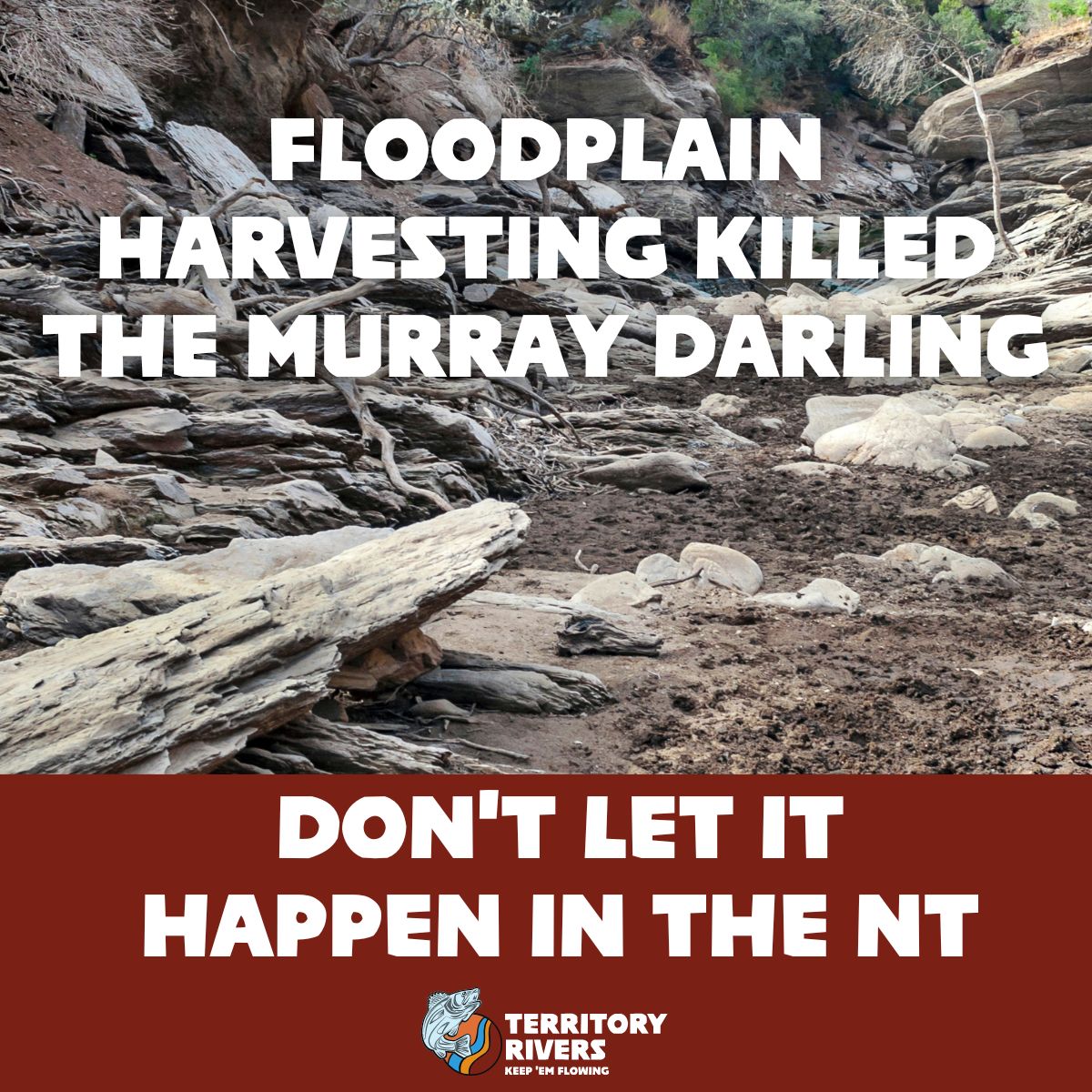
The impacts of ‘floodplain harvesting’ policies
Learn moreThe NT Government has recently released new plan that would allow big business to take huge amounts of water for cotton, and mining through ‘floodplain harvesting’ – taking wet season flows from our rivers and floodplains.
The Northern Territory is known around the world for its iconic natural treasures, including our free-flowing rivers. The government’s draft policy would lead to a rush of new dams on floodplains, meaning that massive amounts of water would be taken from river systems such as the Daly, Roper, and Katherine – threatening environmental and cultural values, as well as fishing, tourism, and our Top End lifestyle.
The NT Government are now asking the public to have their say on this plan. This is our chance to tell the Fyles Government why we want to guarantee the health of our rivers and floodplains and rule out plans to take more water from our rivers and allow dams. Submissions for this close Monday 9 January 2023.
Recently, we had independent policy experts on floodplain harvesting, Maryanne Slattery and Bill Johnson, who research water matters and provide expert advice on water policy and management, on an exclusive webinar to give information and advice on the new draft policy.
How you can help
1 – Take action to save our floodplains now
Use our online tool to tell the Fyles Government why you want them to guarantee the health of our rivers and floodplains and rule out plans to take more water from our rivers and dams.
2 – If you’d like to make a more detailed, personal submission
Like more details? If you want to write a more detailed, personalised submission, you can listen to a recent webinar from our friends at Slattery and Johnson (below), download their submission guide and send your submission to WaterSecurity.NTG@nt.gov.au.
We need a different approach – one that works to keep our Territory rivers special. Let’s keep the Territory’s rivers flowing.
If you have any questions reach out to our team via info@territoryrivers.org.au or Facebook. We’d love to see your submissions.
‘Floodplain Harvesting’ in the news
cotton, cotton industry, Daly River, environment, floodplainharvesting, murraydarlingbasin, NT Government, roper, roper river, Territory rivers
-

Greatest threat to our rivers revealed in State of the Environment report
Learn moreOur national report card is in and it’s grim – but it’s not too late to save our rivers
Last week, Federal Environment Minister Tanya Plibersek released the 2021 State of the Environment Report – detailing the poor and deteriorating health of Australia’s natural environment.
If we’ve learned anything from this report, it’s that Territorians like yourself have a unique opportunity to ensure our rivers and environment prosper into the future. But it’s going to take all of us working together to do more.
Don’t let our Top End rivers become a statistic in future reports – tell the NT Government to protect our rivers and floodplains.
Nature in Australia is under more pressure than ever – and our rivers, heritage and native species are seriously suffering. It’s also a dire warning that the greatest threat facing rivers is the extraction of surface water and groundwater.

Here are some key findings from the report: - Rivers and catchments are mostly in poor condition, and native fish populations have declined by more than 90 per cent in the past 150 years.
- The greatest threat to freshwater ecosystems and biodiversity is changes to river and stream flows due to surface water and groundwater extraction primarily for agriculture.
- Half of Australian freshwater turtle species are currently listed as vulnerable, endangered or critically endangered.
- Destruction of Indigenous heritage is occurring at an unacceptable rate.
These results are shocking and make it very clear that we need to protect our Territory rivers such as the Daly, Roper, Adelaide and Victoria from big irrigation projects.
We’re expecting very soon to see the NT Government release details of a dangerous plan that would open up our rivers and floodplains to the same cotton industry players from the dying Murray Darling – putting our Territory fishing, tourism and lifestyle at risk. If this plan goes ahead, it will lead to a rush of new dams on creeks and more water being taken from our rivers.
This report is the wake up call that those in power in Darwin need to listen to – it’s a clear message from experts that it’s now or never.
Tell the NT Government to protect our rivers and floodplains.
The Northern Territory is home to special, healthy, free-flowing rivers. We’ve seen the damage done to the Murray Darling, but it’s not too late to protect our Territory rivers.
Let’s keep our rivers flowing.adelaide river, Daly River, roper, roper river, Victoria River
-
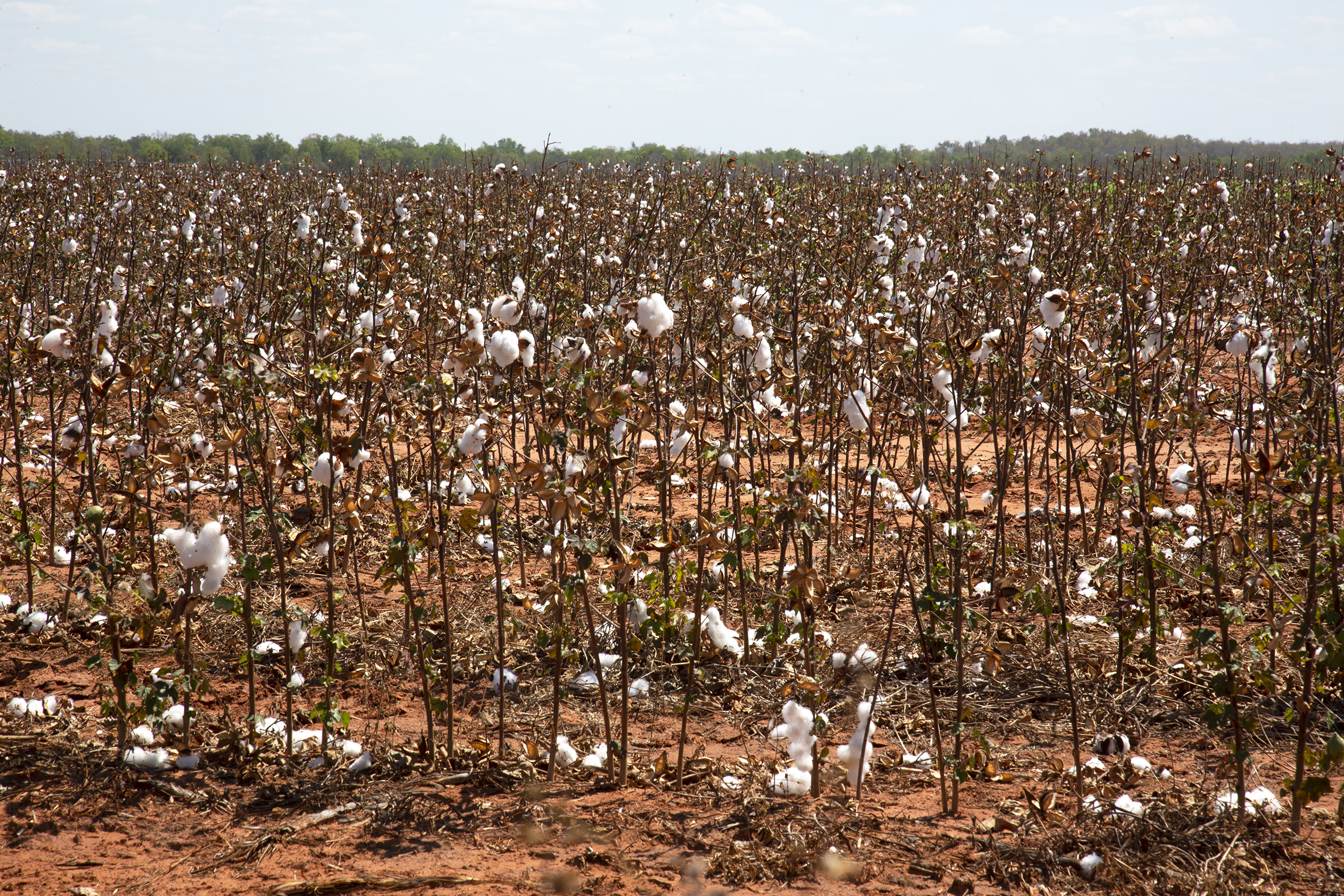
Concern for future of Territory Rivers as ‘slipshod regulation’ allows cotton industry to clear land without permission
Learn moreEnvironmental groups have called for greater protection of Northern Territory rivers, following a decision by the Northern Territory Government to grant a retrospective land clearing approval for a large cotton gin facility near Katherine.
Construction at Tarwoo started months before the proponents obtained planning and environmental approvals. Despite requests from local residents and environmental groups, the NT Environment Protection Authority (EPA) decided not to undertake a full environmental assessment into the direct and indirect impacts of the facility.
After discovering the land clearing through satellite imagery, the Territory Rivers alliance submitted a formal complaint to the Department of Environment, Parks and Water Security (DEPWS), asking for a full investigation of the unpermitted clearing.
“Despite the alarm bell being sounded and an ongoing investigation by DEPWS, the NT Government still approved the clearing. You have to ask the question – why are the cotton industry being allowed to charge on without observing the rules others have to follow?” Co-director of the Environment Centre NT (ECNT) Kirsty Howey said.
“Territorians are rightly concerned about the future of this industry’s impact on our rivers and floodplains. The proponents of this cotton gin failed to wait for key approval processes and began clearing and building the facility, thereby putting pressure on decision-makers to keep things moving according to the industry’s schedule. The NT Government is rewarding non-compliance by granting a retrospective clearing approval. This is sending a clear message that some individuals will be allowed to break the rules without any consequences,” said Ms Howey.
“More than ever we need strong safeguards to protect the health of our rivers and landscapes, but instead we’re seeing industry charge ahead, facilitated by slipshod regulation and retrospective approvals.”
“As the rush for cotton to feed this gin intensifies, further pressure will be placed on communities, fishing economies and iconic rivers like the Daly and Roper.”“Hundreds of Territorians have called for the NT Environment Protection Authority to take a closer look at the industrial cotton gin and its downstream impacts on our iconic Top End rivers,” said NT Manager for the Pew Charitable Trusts Mitch Hart.
“This facility will enable industry to clear much larger swathes of land for crops such as cotton. Despite industry claims of ‘dryland’ variants, history has shown that this is the first step towards massive amounts of water being taken from our river systems and floodplains.”
“Right now, we need to see the NT Government doing more to get this right, to listen to communities, protect our fishing and avoid repeating the mistakes of the Murray Darling,” said Mr Hart.
cotton, cotton industry, Daly River, land clearing, NT Government, roper, roper river, Territory rivers
